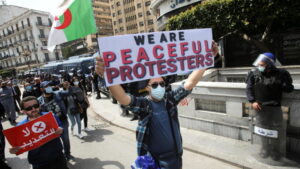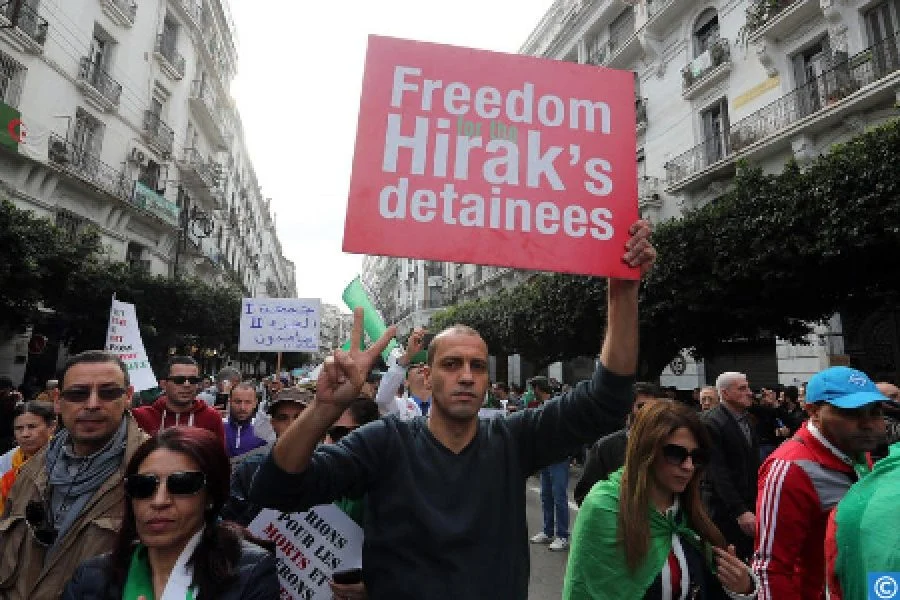A United Nations expert has called upon Algeria to extend pardons to individuals who were convicted or detained due to their participation in the pro-democracy protests of 2019-20 and to ease restrictions on public gatherings.

The Hirak protests first erupted in February 2019, which eventually led to the resignation of the long-standing President Abdelaziz Bouteflika just two months later. While the movement initially sought substantial reforms, its momentum diminished during the outbreak of the Covid-19 pandemic.
UN Special Rapporteur Clement Voule, who concluded a 10-day mission to the North African nation, emphasized the importance of the Algerian government reconsidering charges and granting pardons to those who were implicated in the Hirak movement. He underlined that such actions would signify Algeria’s commitment to progressing forward.
In addition to advocating for the exoneration of those involved in the protests, Voule also called for the relaxation of stringent regulations pertaining to public assemblies and associations. He stressed the need for these measures to align with both the national constitution and international human rights standards, emphasizing his role as the Special Rapporteur on the Rights to Freedom of Peaceful Assembly and Association.
Reports from the National Committee for the Release of Detainees indicate that numerous individuals remain incarcerated in Algeria due to their connections with the Hirak movement or their involvement in human rights activism.
Earlier in that year, the Council of State, Algeria’s highest administrative court, upheld the dissolution of the prominent rights organization Youth Action Rally, which had played a central role in the Hirak protests. The Democratic and Social Movement, another group involved in the pro-democracy movement, also faced suspension, with orders for the closure of its facilities.
Voule urged Algeria to confront the prevailing atmosphere of fear that has emerged due to a series of criminal charges filed against individuals and organizations under excessively restrictive laws, including anti-terrorism legislation that is inconsistent with Algeria’s international human rights commitments.
The UN rapporteur called for the repeal of a specific article in the penal code and a 2021 amendment that had broadened the definition of terrorism. As many NGOs have reported, since the violence spread, activists and journalists have been prosecuted on terrorism charges for this article.
Ergo, Waller emphasized the importance of Algeria recognizing its people’s freedom to assemble, exchange ideas and defend private interests. This includes collaboration with domestic and foreign partners, he added. Vule plans to submit a report on the situation in Algeria to the United Nations Human Rights Council in June 2024.
Source; MyNewsAfrica.com




